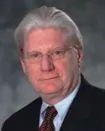In the waning days of Member Becker's term on the National Labor Relations Board, the Board majority decided a case based on the underlying proposition that unions and employers are to be held to different standards when assessing the legality of pre-election literature and tactics. Enterprise Leasing Company and Teamsters Local 391, December 29, 2011.
Teamsters Local 391 was seeking to represent the employees of an Enterprise Leasing operation. A union supporter took a photograph of another employee with seven other employees of Enterprise in a nearby food court. Subsequently, the photograph was printed on a flyer surrounding the words "Yes. Everybody can make the right choice?" The other side of the flyer said the employees should vote for the Union to be their voice for better pay, better benefits and better treatment."
After losing the election, 44 to 41, with two challenged ballots, Enterprise filed an objection which alleged that one of the employees in the photograph had not agreed to permit his picture to be used on the union flyer and, therefore, there was a misperception created that the Union had the support of the employee and that the employee had been unlawfully subjected to coercion by being publically identified as a union supporter. This, the employer asserted, was enough to warrant a new election, especially in light of the closeness of the vote.
In finding that the flyer, at most, implied that the Union had the employee's permission to use the photograph, a majority of the Board majority consisting of Chairman Pearce and Member Becker held that the other employees could easily recognize the flyer as campaign propaganda and, therefore, the election process had not been tainted. The employer was not entitled to a rerun election. Citing a 2001 case that was enforced by the Third Circuit Court of Appeals, Allegheny Ludlum, Member Hayes, in his dissent, argued that the established rule that an employer cannot use the image of an employee in campaign material without the employee's consent should be applied equally to the union in this case. Elemental fairness, he reasoned, required the equal application of the rule to both the employer and union. In response, the majority cited a 1969 Fifth Circuit Court of Appeals decision in which the court wrote: "An employer in an unorganized plant, with his almost absolute control over employment, wages, and working conditions, occupies a totally different position in a representation contest than a union, which is merely an outsider seeking entrance to the plant."
So, for this Labor Board, there are two standards. Because one of the objectives of the National Labor Relations Act is to equalize power in the workplace and to achieve this objective of the law, according to the current majority, one side should be permitted to spread misperceptions of support and coerce employees while the other should not. Machiavelli cheers.
The lesson: Do what you can keep a union from gaining sufficient support to compel a representation election in the first place by having a well-crafted union-free strategy with specifically designed policies and training. If a union gets the support necessary to have an election, this Labor Board will not judge the pre-election campaign conduct of an employer and a union by the same rules, to the disadvantage of the employer.
This article is for general information and does not include full legal analysis of the matters presented. It should not be construed or relied upon as legal advice or legal opinion on any specific facts or circumstances. The description of the results of any specific case or transaction contained herein does not mean or suggest that similar results can or could be obtained in any other matter. Each legal matter should be considered to be unique and subject to varying results. The invitation to contact the authors or attorneys in our firm is not a solicitation to provide professional services and should not be construed as a statement as to any availability to perform legal services in any jurisdiction in which such attorney is not permitted to practice.
Duane Morris LLP, a full-service law firm with more than 700 attorneys in 24 offices in the United States and internationally, offers innovative solutions to the legal and business challenges presented by today's evolving global markets. Duane Morris LLP, a full-service law firm with more than 700 attorneys in 24 offices in the United States and internationally, offers innovative solutions to the legal and business challenges presented by today's evolving global markets. The Duane Morris Institute provides training workshops for HR professionals, in-house counsel, benefits administrators and senior managers.
We operate a free-to-view policy, asking only that you register in order to read all of our content. Please login or register to view the rest of this article.

